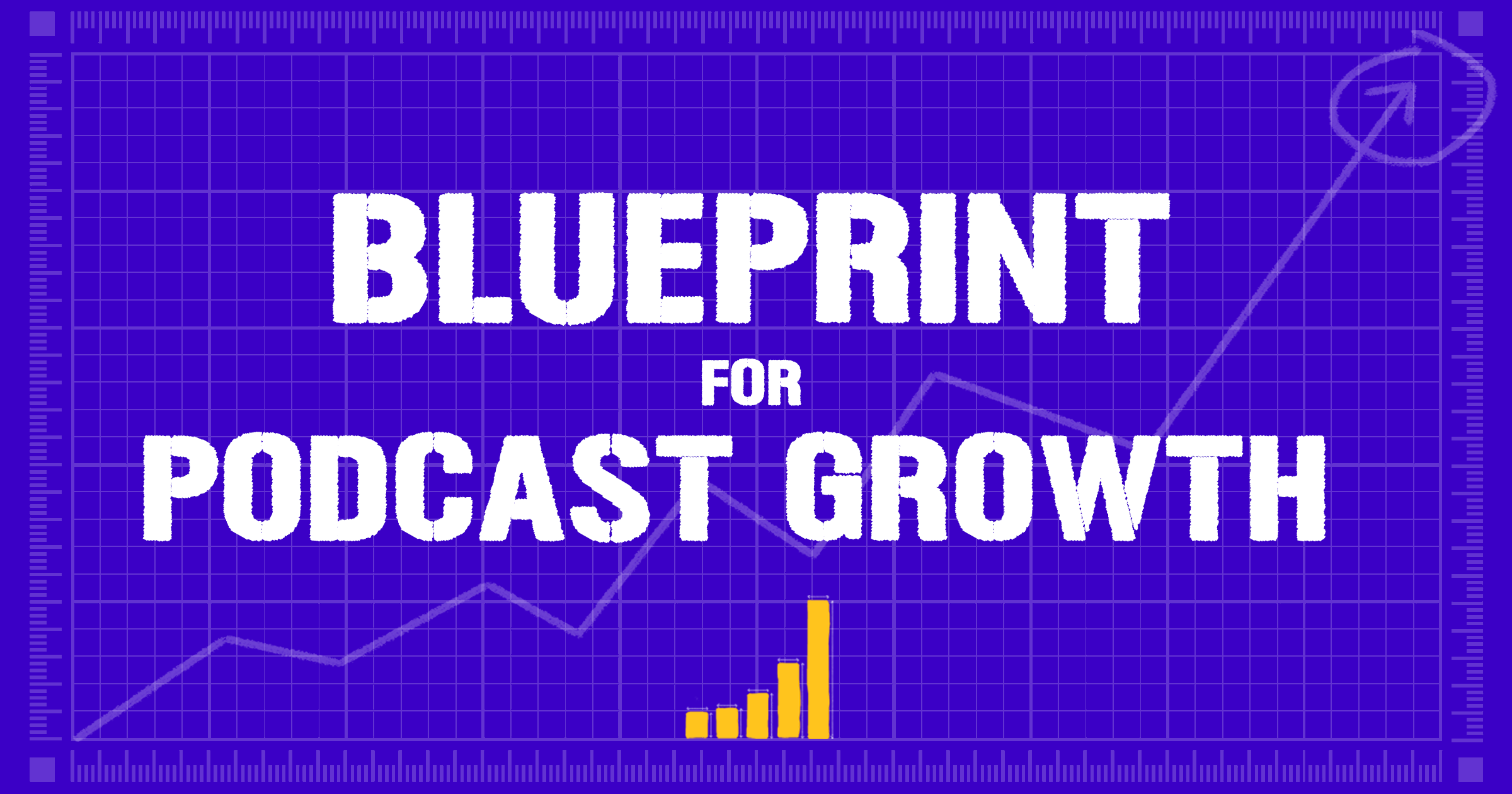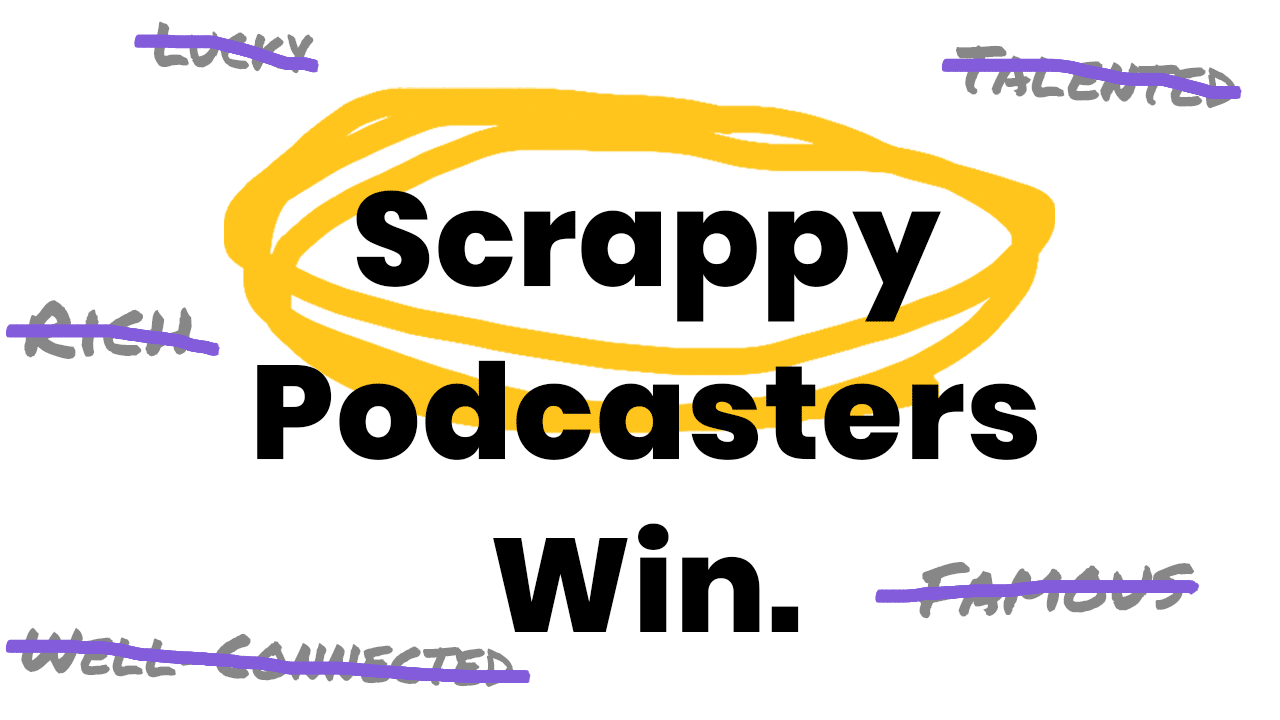As we approach the end of the year, I’ve been transitioning into planning and goal setting mode for the upcoming one, something no doubt many of you are doing as well for your work, life, and podcasts.
I typically like to take a week off to do nothing but lay out my goals for the next year and create actionable roadmaps on how to achieve those goals. Unfortunately, due to my travel schedule, this year however, I won’t have the chance to set aside that week of reflection this year, so I’ve started putting some thought towards goal setting early this year.
In addition to looking forward however, one of the biggest parts of this process I like to dedicate time to is in also looking back on the past year and assessing what went well, what didn’t, and how to make changes to get the results I’d like in the next year.
I believe taking both this time for reflection on what I’ve done, as well as planning what I’m going to do to be hugely beneficial to my business, but also (probably more so) my life as a whole. Similarly, I think that taking this time to do an assessment of our podcasting efforts in the past year is crucial to doing better next year, and moving closer to some of our podcasting (and perhaps podcast business) goals.
We’re going to talk about what it’s going to take to run a successful podcast in 2018 in the next blog post (which will come out in the new year). So today we’re going to focus on reflecting on what we’ve accomplished in the past year, and how to apply those lessons in 2018.
Why Bother Taking The Time To Reflect
Ok, so my week-long reflect-and-plan-a-thon might seem a little extreme, and to be honest, it kind of is.
It’s also one of my favourite weeks of the year, however. I treat it as a kind of retreat for myself, where I swear off all work, will take myself out for a nice meal or two, plan some fun or relaxing activities that I might not make time for generally, and most importantly of all, at least in recent years (thank you Disney), go watch the latest Star Wars movie in the theatres about 6 times*.
* Ok, that’s a BIT of an exaggeration, but only slightly…
Keep in mind that I do actually spend a lot of time during this week devoted to just thinking, something I, and I’m guessing most of us, don’t find enough time to do during our daily and weekly grinds. Oh, and I make an obscene amount of lists. Seriously, pages and pages and pages.
I like lists.
I find that although I’m constantly coming up with ideas and strategies to research and flesh out, they often get pushed into my notebooks and never end up getting acted on. Setting aside a large chunk of time dedicated to thinking strategically allows me to actually revisit these ideas and think about how to implement them effectively.
In a way, the week kind of feels like I’m finally organizing my mental desktop, on which random papers, notes, proposals, and Cheetos crumbs have been accumulating over the past year*.
* I know what you’re wondering, and yes, OF COURSE I eat those old Cheetos crumbs. Duh…
This mental organization alone makes the week worth it, but for me, one of the most essential elements of the week is taking time (and making lists) reflecting on the year that was simply to appreciate how far I’ve come and what I’ve accomplished.
Appreciating Your Accomplishments
So, first off, I’ll say that if this exercise is necessary for anyone, it’s podcasters.
Let’s be honest, podcasting is a grind, with few, if any “big breaks” to be had. Success – however you define it – is generally achieved through continuing to put in the requisite work over months or even years.
It often feels like a Sisyphean task with no end in sight, and I know for a fact that almost every podcaster faces stretches where they feel like throwing in the towel and walking away.
While in the midst of that grind, it’s easy to get sucked into viewing your podcast journey through a pinhole and never stopping to look at the larger picture or trajectory of your show.
The problem is perspective. I’m guessing that during the past year, there were in fact some wins that are worth celebrating, and I believe that recognizing and appreciating these wins are essential for anyone who’s in this for the long haul, and to rekindle some excitement and a sense of progress going into the year ahead.
I generally structure my year-end reviews based around a series of questions that I work my way through. Some of the questions I include for digging into these themes of accomplishment are questions like.
- What am I grateful for that happened to/for my podcast in the past year?
- What opportunities did my podcast grant me that I might not have had otherwise?
- Who am I grateful to have met through my podcast that I might not have met otherwise?
- What am I proud to have achieved with my podcast over the past year?
- How is my podcast better now than it was a year ago?
I’m a big believer in gratitude, so a lot of my questions are phrased with that concept in mind, but you can phrase your questions in whatever way makes sense to you, and of course, add additional questions that you find useful to reflect on.
I’m guessing that when you start to dig into questions like these, it won’t take long to realize that even though your numbers might not seem a whole lot better than they were 12 months ago (hopefully they do!), the people you’ve met, the knowledge you’ve gained, and the experiences you’ve had prove that your show has granted you some big wins.
I don’t know about you, but viewing the progress I’ve made in my own life gets me jacked up to barrel headfirst into a new year guns-a-blazing.
Time For Some Analysis
Ok, so now that we’re riding high on gratitude and accomplishment it’s time to dig into some details and strategies that contributed to our show’s successes and shortcomings in the year that was.
While your initial reaction might be to dig into what went wrong in the past year and how to make adjustments in the new year, I believe equal time should be dedicated digging into what you did well, and how you can do more of that in the new year to double down on those results.
It’s hard to overstate the importance (at least for me) of taking some time to do this reset and, as objectively as possible, assess your performance in regards to your podcast. We’ll get into how I collect my answers and come up with actionable goals in a bit, but first we need to get through the discovery phase.
Some of the questions I like to ask in the analysis stage of my yearly review are along the lines of:
- What habits or actions contributed to the success of my podcast in the past year?
- What habits or actions hurt my podcast in the past year?
- Which efforts got me the greatest return on my time/monetary investment?
- Which efforts were largely a waste of time or got me only limited results?
- What experiments did I perform in the past year? What were the results?
- What experiments do I want to perform this year? What do I hope to achieve with them?
These are just some of the many questions I ask myself, and you can download my complete podcast annual review here.
Turning Your Answers Into An Actionable Roadmap
So I’ll usually spend the first couple days of my planning week looking back on the year that was, both to recognize my wins and achievements, as well as explore the reasons behind the things that went well, and the things that didn’t go well.
And while I think these practices are incredibly valuable on their own, they’re only the first step. From here, it’s time to organize my answers to the discovery questions, and put together a plan of what I’m going to do differently, and what I’m going to double down on in the coming year, to continue moving me forward.
In terms of goal setting, I’ll mention that starting a few weeks before my planning week, I start thinking about broad goals for the coming year, and writing everything down.
At this point, I just want to get everything down on paper, and will worry about sorting through and prioritizing goals later. I’ll also devote a significant amount of time during the planning week to doing nothing but thinking and daydreaming about what I’d like to accomplish in the upcoming year.
While you might have some specific goals or milestones that you might attach to the coming year, maybe concerning specific metrics, I’m guessing that you’re already pretty clear on what the broad goal of your podcast is, be that supporting your business, building a new business around your podcast, helping to establish you as an expert in your field, making new connections, or simply having fun.
How To Start Working Towards Your Big Podcasting Goals
I’m going to assume the big goal for a lot of people reading this is to ultimately grow your podcast to a point where you’re able to bring in some income from it, whether that’s enough to replace your day job, a nice side income stream, or just enough to cover the production costs of your show.
First things first I would make that goal specific and measurable. Let’s say you’d like to earn $500/mo, or $6000/yr as a result of your show. Depending on where you’re at, this might seem completely impossible, or way too easily achievable. Pick a goal that makes sense for your show.
Once you have your goal, it’s time to break down every conceivable way that you could see yourself getting there. Seriously, dump every single idea you have about how your show could bring in income into a list, without worrying about how practical or outlandish the ideas might seem.
After you’ve compiled a list of ways to meet your goal, it’s time to go through them and determine which you think are the best fit for you, your show, and your audience. Are you better positioned to pursue some of the options than others? What is your audience asking for? What are or aren’t other podcasters or bloggers in similar niches offering?
Try and whittle your list down to three or four options. Believe me, while you think now that you have the bandwidth to pursue all of them, that just ain’t true. Focused effort is key here.
Once you have that list, it’s time to break down those strategies and put some thought into what habits you’re going to have to implement into your podcasting workflow for these to be effective.
Maybe you need to grow your audience to a certain point before you feel you can monetize at the level you’re shooting for. Ok, what do you need to do to achieve that? Is that a matter of getting bigger guests on your show? Making a greater effort to guest on other podcasts? Collaborating with other podcasters in your space? All of these? Ok, what steps are involved in bringing about each of these goals?
Keep drilling down until you have a list of small, actionable steps and habits that will ultimately lead up to your bigger goal.
Again, the key word is focus. Last year I came up with about 30 goals during my initial brainstorming session, and I wrote down the steps to achieving each of those goals before filtering further. In the end, I wound up with 12 major goals for 2017, some of which I achieved, and some of which I didn’t for various reasons, not least of which is realizing at some point that the original goal was no longer something I wanted.
I can’t overstate how important it is to have clear, concise goals to work towards, so make sure that you’re not spreading yourself too thin.
Tweaking Your Podcast Workflow
This is the point where it’s time to take a hard look at your answers to the questions in the discovery and reflection phase of the review and assess which pursuits should be maintained or amplified, which should be cut or reduced, and which new practices should be introduced with your new goals and milestones in mind.
It’s entirely possible that some practices that to this point have been having a positive impact on your show are no longer aligned with your new goals, and with the limited amount of time most podcasters have to dedicate to their shows, it’s essential to be using that time effectively.
Once you’ve decided on your goals, the steps or milestones on the way to achieving them, and the habits and practices that you need to incorporate into your show’s workflow in order to keep progressing, I feel like it’s crucial to codify these.
I like to write down my overall list of goals on one sheet of paper and tape it to my wall above my computer where I see it every day. I then keep the written breakdowns of each of those goals on hand on my desk so I can easily check the roadmap and track my progress.
I’m also a fan of setting up calendar reminders for milestones, so that I’m regularly reminded about what I’m supposed to be working on and towards. Other options I’ve used have been to make an image of my list of goals and set it has my computer and phone background (yes both, I’m a dork, I know…), and starting each day by writing down my goals on a piece of paper (again, yes I know, dork).
Possibly most effectively is setting up an accountability system with other podcasters also committed to growing their shows. We’ve set up a couple of mastermind groups in The Cut The Bullshit Podcasting Community
that are starting in the new year and will be designed to deliver just that accountability, along with a whole bunch more benefits.
We’ll be setting up more of them in the future, so if that sounds like something you and your show could benefit from, definitely come say hi and hang out with us in the community, it’s pretty rad.
I would seriously absolutely LOVE to hear about some of the goals you’re working towards in 2018, some of the steps involved in getting there, and some of the changes you’re implementing to you production and promotion workflow to ensure that you’re steadily moving towards them. Drop ’em in the comments!
[mailerlite_form form_id=2]
- Why Wouldn’t They Just Google It? - March 14, 2021
- Before You Can Market Your Podcast, You Need To Create A Marketable Podcast - March 11, 2021
- Podcast Promotion & Marketing Are Different (Here’s How to Use Each Effectively) - March 10, 2021




